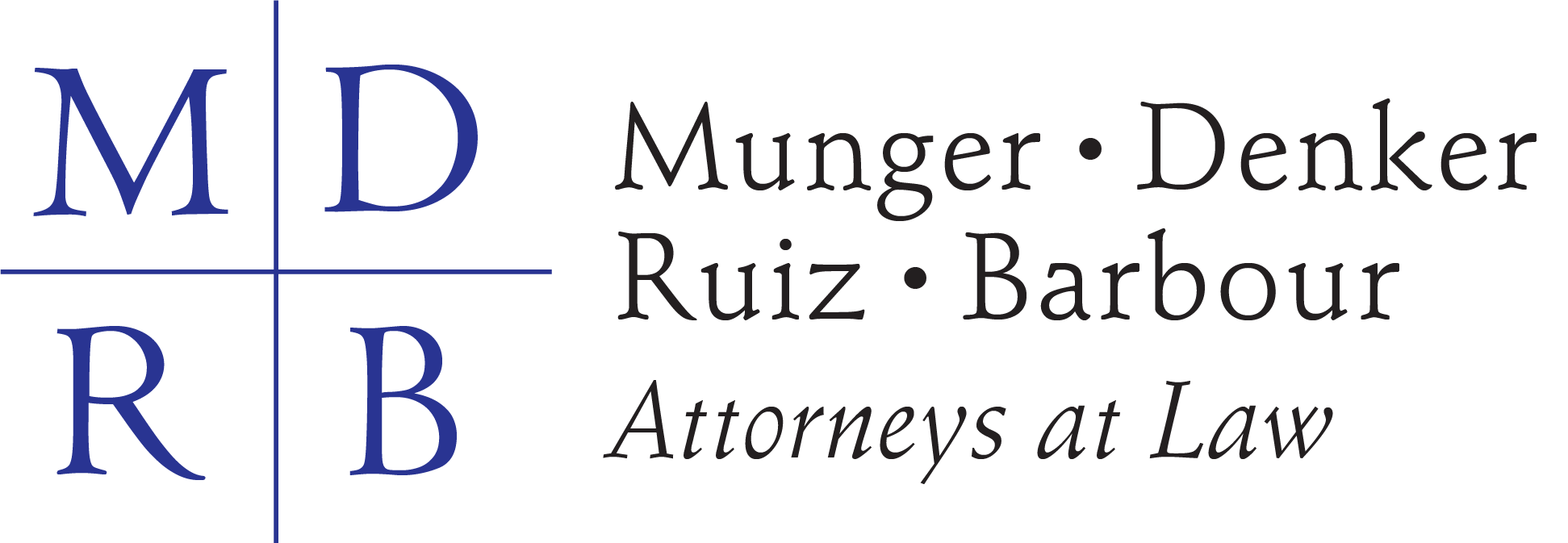
Piercing the Corporate Veil in Arizona: Understanding the Legal Doctrine
Under American law, corporations and limited liability companies serve as distinct legal entities, separate from their shareholders or members. This separation, which protects the company’s owners from liability for the business’s debts actions, often is referred to as the “corporate veil.” In certain circumstances, however, courts may allow the corporate veil to be “pierced,” making the shareholders or members of the company personally liable for the corporation’s debts or actions. The attorneys at Munger • Denker • Ruiz • Barbour are here to explain the complicated world of corporate liabilities.
Understanding the Corporate Veil
The corporate veil is a fundamental concept in business law that provides crucial liability protection to the owners of corporations and limited liability companies. This protection ensures that personal assets are shielded from the debts and liabilities of the corporation. In most cases, shareholders or owners cannot be held personally responsible for the corporation’s obligations beyond the owners’ investment or ownership stake.
Piercing the Corporate Veil: Legal Doctrine
Piercing the corporate veil is an exceptional action that allows courts to disregard the corporate entity’s separate legal status and hold shareholders or owners personally liable. In Arizona, the courts apply a strict standard when considering whether to pierce the corporate veil. To pierce the corporate veil successfully, one or more of the following elements generally must be proven:
- Improper Use: The shareholder or owner must have used the corporate entity to engage in fraudulent, unfair, or illegal activities.
- Alter Ego: The court must find that there is such unity between the corporation and the individual that treating them as separate entities would result in an injustice or would defeat the purpose of the law.
- Unjust Result: Piercing the corporate veil must be necessary to prevent an unjust result or to protect the rights of a third party who otherwise would be left without a remedy.
Factors Considered by the Court
When determining whether to pierce the corporate veil, Arizona courts consider several factors, including:
- Undercapitalization: If the corporation is undercapitalized, meaning it lacks sufficient funds to meet its obligations, courts may view this as a factor supporting piercing of the corporate veil.
- Co-mingling of Assets: Mixing personal and corporate funds or failing to maintain separate bank accounts for business and personal finances may weaken the separation of the corporate entity, making it easier to pierce the corporate veil.
- Fraud or Misrepresentation: Courts closely scrutinize cases involving fraud, misrepresentation, or the fraudulent conveyance of assets to determine if the corporate veil should be pierced to hold individuals accountable.
- Lack of Corporate Formalities: Failure to follow corporate formalities, such as holding regular shareholder meetings, keeping proper records, and maintaining corporate minutes, may erode the separation between the business and its owners.
Implications for Business Owners
A piercing of the corporate veil can have significant consequences for business owners, exposing them to personal liability for the corporation’s debts and other legal obligations. Business owners should take proactive steps to minimize the risk that the corporate veil will be pierced, including:
- Proper Capitalization: Ensuring the business is funded adequately and has the necessary resources to meet its financial obligations.
- Maintaining Separate Finances: Keeping personal and business finances separate by maintaining separate bank accounts, financial records, and financial transactions.
- Corporate Compliance: Adhering to all legal formalities, such as holding regular meetings, maintaining accurate records, and filing required reports with the state.
- Ethical Business Practices: Conducting business with integrity and avoiding fraudulent or unfair activities that could jeopardize the corporate entity’s separateness.
Conclusion
While the corporate veil serves as a crucial safeguard for shareholders and owners, Arizona business owners need to know that courts have the authority to pierce the corporate veil under specific circumstances. Understanding the legal doctrine and the factors considered by the court is vital in protecting yourself from personal liability. By operating ethically, adhering to proper corporate formalities, and maintaining a clear separation between personal and business finances, business owners can help preserve the corporate entity’s integrity and minimize the risk that the corporate veil will be pierced. For expert guidance on corporate matters and to ensure compliance with legal requirements, consult with the experienced attorneys at Munger • Denker • Ruiz • Barbour.
Latest Posts
Quiet Title
Normally, it is simple to determine who is the lawful owner of real property: Whoever is listed on the last deed recorded with the county recorder’s...
Quiet Title
Safeguarding Your Interests in Arizona Probate Court
What Is Probate Court? A probate court is one that has authority or jurisdiction over all cases involving wills, trusts, estates, and...



